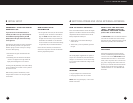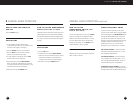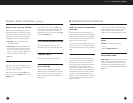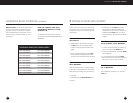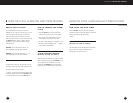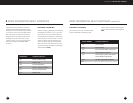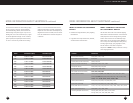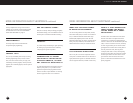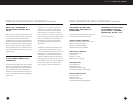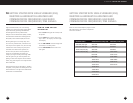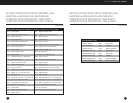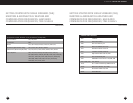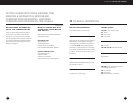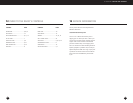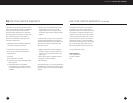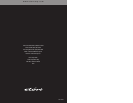
AMATEUR RADIO AERONAUTICAL (usually USB) MARITIME (usually USB)
3700-4000, LSB, night. 2850-3155 4063-4438
7150-7300, LSB, night. 3400-3500 6200-6525
14150-14350, USB, day. 4650-4750 8195-8815
21150-21450, USB, day. 5480-5730 12230-13200
6525-6765 16360-17410
8815-9040 18780-18900
10005-10100 19680-19800
11175-11400 22000-22720
13200-13360 25070-25110
15010-15100
17900-18030
21870-22000
23200-23350
G 4 0 0 0A O PE RATI ON M AN UAL
25
Below are some selected frequency ranges on which
SSB communication can be found. All frequencies
are shown in Kilohertz.
GETTING STARTED WITH SINGLE SIDEBAND (SSB);
MARITIME & AERONAUTICAL WEATHER AND
COMMUNICATION FREQUENCIES; HAM RADIO
COMMUNICATION FREQUENCIES; TIME SIGNALS
24
10 GETTING STARTED WITH SINGLE SIDEBAND (SSB);
MARITIME & AERONAUTICAL WEATHER AND
COMMUNICATION FREQUENCIES; HAM RADIO
COMMUNICATION FREQUENCIES; TIME SIGNALS
High end shortwave radios, such as the Grundig
G4000A, have a feature called SSB, a highly efficient
way of electronically processing transmitted and
received signals for two-way communication.
Examples of this are amateur radio (hams), maritime,
and aeronautical communication. Either upper side
band (USB) or lower side band (LSB) can be used.
Receiving SSB signals is not always easy. Since
this is two-way communication, transmissions are
often very short and sporadic. Also, most two-way
communication uses relatively low power, 50 to
1000 watts. The amateur radio operators are
easiest to find; the others can be very difficult.
Signals are also affected by the eleven year
sunspot cycle. Signals will be poor through 1996
then the signals will get continually better until
peaking in 2002 when reception will be excellent.
Overall, very good reception can be expected from
about 1998-2005.
Finding SSB signals can be like seeking a “needle in
a haystack”, so be patient! The easiest place to find
SSB communication is at night in the amateur band
shown below at 3700-4000 KHz.
HOW TO TU RN THE SSB
FEATURE ON
1. Slide the SSB switch (right side of radio) to the
ON position.
2. Use the STEP button to select 1 KHz tuning
steps. “STEP 1” will display in the lower right
of the display.
3. Put the FINE TUNING control knob (right side
of the radio) in its center position.
4. Use the FINE TUNING control knob to fine
tune signals.
continued



